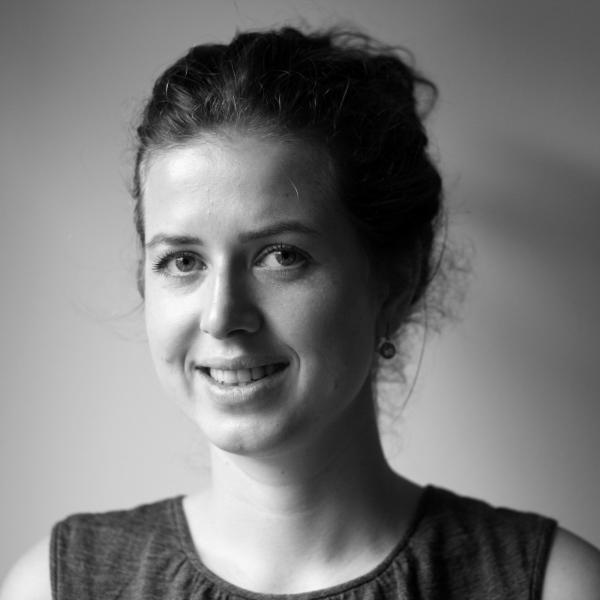Crowdfunding is gaining in worldwide popularity. Some crowdfunding platforms specialize in impact investments. Who is crowdfunding for financial inclusion? Who is the crowd of these platforms and what deals do they fund? As part of this year’s European Microfinance Week, Marloes Noppen will participate in a panel on crowdfunding, together with representatives from Babyloan, Lendahand, LITA.co and Mekar. FinDev Gateway sat down with her ahead of this event to get a preview of some of the issues which will be discussed.
 FinDev: What is crowdfunding? How does it work, and how would you categorize it - what family of funding does it belong to?
FinDev: What is crowdfunding? How does it work, and how would you categorize it - what family of funding does it belong to?
Marloes: Crowdfunding is exactly what it says: funding by a large number of parties. It is intentionally broad. Funding can mean equity investments, debt, pre-purchasing products or donations. The parties can range from retail investors to institutional investors. Crowdfunding allows for a lot of flexibility and is therefore not that easy to fit into a box. Definitely, it would fall into a fintech solution
FinDev: What does the crowdfunding landscape look like in the inclusive finance sector? How has it evolved? Where is it most used in the world, and for what kinds of projects?
Marloes: Crowdfunding for inclusive finance has in many ways evolved like inclusive finance itself. It started out as a non-profit activity and has become increasingly for-profit and more heavily supervised. Crowdfunding started out with the ability to donate money to microfinance institutions, via marketing stories of the end-client. Non-profit organizations such as Kiva began to offer loans to microfinance institutions with zero percent interest. Other platforms such as France-based Babyloan, began to replicate this model. These days, crowdfunders are mostly regulated and many of them are for-profit. For example, the Europe-based Lendahand and Plumseeds are for-profit crowdfunding platforms operating as investment companies. While Lendahand caters to retail customers, Plumseeds only serves professional institutions.
While in the beginning, many of these platforms were founded in developed markets, we are increasingly seeing crowdfunding platforms popping up in emerging markets. Milaap in India and Mekar in Indonesia are great examples of this. They mostly focus on microfinance and SME finance, but a number of platforms have started incorporating other critical services such as renewable energy and education.
Read the full interview here
Read the interview in French here
Source: FinDev Gateway
Crowdfunding is gaining in worldwide popularity. Some crowdfunding platforms specialize in impact investments. Who is crowdfunding for financial inclusion? Who is the crowd of these platforms and what deals do they fund? As part of this year’s European Microfinance Week, Marloes Noppen will participate in a panel on crowdfunding, together with representatives from Babyloan, Lendahand, LITA.co and Mekar. FinDev Gateway sat down with her ahead of this event to get a preview of some of the issues which will be discussed.
Marloes: Crowdfunding is exactly what it says: funding by a large number of parties. It is intentionally broad. Funding can mean equity investments, debt, pre-purchasing products or donations. The parties can range from retail investors to institutional investors. Crowdfunding allows for a lot of flexibility and is therefore not that easy to fit into a box. Definitely, it would fall into a fintech solution
FinDev: What does the crowdfunding landscape look like in the inclusive finance sector? How has it evolved? Where is it most used in the world, and for what kinds of projects?
Marloes: Crowdfunding for inclusive finance has in many ways evolved like inclusive finance itself. It started out as a non-profit activity and has become increasingly for-profit and more heavily supervised. Crowdfunding started out with the ability to donate money to microfinance institutions, via marketing stories of the end-client. Non-profit organizations such as Kiva began to offer loans to microfinance institutions with zero percent interest. Other platforms such as France-based Babyloan, began to replicate this model. These days, crowdfunders are mostly regulated and many of them are for-profit. For example, the Europe-based Lendahand and Plumseeds are for-profit crowdfunding platforms operating as investment companies. While Lendahand caters to retail customers, Plumseeds only serves professional institutions.
While in the beginning, many of these platforms were founded in developed markets, we are increasingly seeing crowdfunding platforms popping up in emerging markets. Milaap in India and Mekar in Indonesia are great examples of this. They mostly focus on microfinance and SME finance, but a number of platforms have started incorporating other critical services such as renewable energy and education.
Read the full interview here
Read the interview in French here
Source: FinDev Gateway